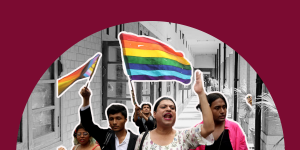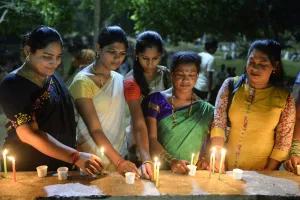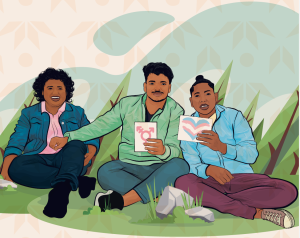How Kerala is A Long Way Off In Gender Affirmative Healthcare For Trans Persons

Anuradha Govindan of Kannur, 38, waited for thirty years to embrace her identity as a transwoman. Before she was able to live the life she wanted, Govindan used up all her savings from her time as an accountant in Dubai, to fulfill her family commitments– build a family home and get her siblings married.
Seven years ago, with a small sum of Rs 3000 borrowed from a friend, she moved to the neighbouring Kozhikode district to start a new life. But holding a job as a transwoman was not easy.
“After fulfilling my responsibilities, I was finally ready to live my life on my own terms. I started wearing makeup and salwars. Most people, even those who reported to me, ridiculed me”, she said.
Fed up of the discrimination at work, she quit her job as an accountant and began working as a makeup artist.
Even though this meant starting from scratch, Govindan worked hard to save up for her sex reassignment surgery (SRS).
“For transgender persons, sex reassignment surgery (SRS) is the only ray of hope”, she told BehanBox. “Because of our facial hair and masculine features, we tend to overdo makeup to hide them but it ends up looking odd. I didn’t even have the confidence to go out for a cup of tea”, she adds.
In 2018, Anuradha consulted with doctors at Renai Medicity, a private hospital in Kochi, to begin her procedure for transitioning. A year after starting hormone therapy, Govindan underwent top surgery (breast implant) in 2019 and SRS in May 2020.
28 year-old Anannyah Kumari Alex started her transitioning process, a month after Govindan. Both chose Renai Medicity and were operated upon by the same team of doctors in May and June 2020 respectively.
Both suffered intestinal obstruction with heavy vomiting, a postoperative complication, which left them bedridden for weeks. It took more than six months for them to recover from the complications of ‘intestinal vaginoplasty’- a procedure that uses a section of the intestine to create the vagina.
While Govindan lived to tell her tale, Alex who was unable to bear the post operative physical and mental trauma, died by suicide at her rented apartment at Kochi on July 20, 2020. Unable to bear the loss, her partner Jiju too died by suicide a day after her death.
In the days before her death, Alex had spoken out openly about the trauma of her sex reassignment surgery and against the medical negligence of Renai Medicity.
“I can’t laugh or sneeze. When I urinate, it would spray outside the commode. I have to use 8-10 sanitary pads per day. I don’t have a single penny to even buy pads,” she had explained in a discussion on ‘Chromosomes’ on Clubhouse, the social media app.
“Medical negligence adds more to our trauma. Why do these people exploit marginalised persons like us?” asked Alex, in an interview to The Cue, an online portal.
Alex’s death brings to fore the several gaps in the provision of gender affirmative healthcare in Kerala, which include high costs of SRS and transitioning processes and the near total absence of the government in healthcare provision.
Medical Negligence

Anannyah Kumari Alex had many firsts to her credit. She was the first transgender radio jockey (RJ) in Kerala and the first transwoman to officially anchor the 25th International Film Festival of Kerala held in February and March 2021. In another first, she became the first transgender person to file nomination to contest the Kerala assembly elections in April 2021. She later withdrew after alleging that the Democratic Social Justice Party (DSJP), a regional party, had backed her to gain publicity and accused its leaders of making sexually abusive comments against her.
Alex was an articulate advocate and activist within the transgender community in Kerala. She had been laying bare the graphic details of her botched surgery in her interviews with several media platforms and the ensuing trauma she had to endure.
“You cannot call my post-surgery private part a vagina. It is like a hacked piece of meat. It looks as if a hole is made on the flesh. I go through excruciating pain every day”, she told The Cue.
A day before her death, Alex had her close friend Heidi Saadiya record a video of her ordeal and demanded punitive action against Renai Medicity.
“I need to undergo corrective surgery by an expert doctor. I am a person who sees life in a positive way. But sometimes I feel like ending my life. The doctor and the hospital I chose have thrown me onto the street,” she said in the video.
“She was planning for a corrective surgery in Delhi for which we were crowd sourcing funds”, said Saadiya. “ I uploaded the video the next day and within an hour I got a call informing me of her death”, Saadiya told Behanbox.
The surgery and the complications thereafter, had left Alex jobless and penniless.
“We knew Anannyah as a well-groomed person who always wore the best clothes and makeup. Complications after the surgery had completely broken her. Pandemic and lockdown situations made matters worse,” said Saadiya, who considered Anannyah as her sister.
Botched surgeries are not new but many suffered the post SRS complications in silence. Alex, however, chose to speak against medical negligence and hold the private hospital to account. Many, even within within the transgender community, had tried to silence her when she spoke out, fearing that it might sabotage the only available treatment facilities in the state, said a transgender rights activist who requested anonymity.
“Until a few years ago, trans persons had to go to neighbouring states for SRS as it was unavailable in Kerala. Now the state government was providing reimbursement of SRS and hospitals were introducing modern methods”, said the activist. “ While Anannyah did not have much support initially, we understood the trauma she went through.”
Govindan herself has not suffered serious post-surgical complications but she is not entirely happy with the outcome.
“We agree to complex surgeries like colon vaginoplasty on the assurance that we could lead a normal sexual life at least for 10 years. I find sexual intercourse very painful”, she said.
Kalamaseery police investigating into the death of Anannyah, said that they were not looking into the issue of medical negligence.
“Our scope of investigation is to check whether it is a suicide or a homicide. Preliminary findings from post-mortem shows that it was a case of suicide,” said circle inspector P R Santhosh. He ruled out media reports that post-mortem revealed details of unhealed wounds in Anannyah’s private parts. “We haven’t received any such details. If we get any further evidence from the forensic report, we will investigate,” he said.
Transgender persons who have been left reeling after botched surgeries are not keen to register formal complaints of medical negligence against the hospitals.
Renai Medicity ruled out the allegations of medical negligence in a press statement it issued after Alex’s death.
“Anannyah had faced the issue of intestinal obstruction, a known complication of SRS, around six days after the surgery. It was corrected through a follow up procedure. Anannyah was well aware of such complications. When she raised complaints, we suggested another surgery to improve the shape of the genital area. However, she alleged medical negligence and demanded compensation. A medical board ruled out allegations of health complications and medical negligence,” it said.
Dr Arjun Asokan, who led the team of doctors performing the surgery, didn’t reply to Behanbox’s messages seeking his response to the issue.
Expensive Surgeries
When Anuradha Govindan wanted to transition, she had estimated that the surgical process would cost 2 lakh rupees. Till date, she has spent 6 lakh rupees and is deep in debt.
“After I paid Rs 2.15 lakh rupees for SRS, which included 81,000 rupees for top surgery, the hospital demanded an additional Rs 75,000 for a follow up surgery to correct the complications from the first surgery”, she said. “I was bedridden with only a close friend to support, so naturally I was shocked”, said Govindan. The hospital had not briefed her about the total cost before the surgery.
Additionally, Govindan spends around 10,000 rupees every two to three months for hormonal therapy.
SRS procedures are expensive in Kerala as they are conducted in private hospitals only. Access to government healthcare for SRS is entirely absent in the state.
An ordinary vaginoplasty, a procedure that can construct vulva and vaginal canal, costs around anywhere between 1 lakh to 1.5 lakh rupees. A more advanced intestinal vaginoplasty,a process that constructs the vaginal canal using the intestine can cost around 2.5 lakh rupees, said Saadiya. For female to male surgeries, breast removal costs around 65,000 to Rs 1.5 lakh rupees, uterus removal around 85000 to 1.2 lakh rupees and construction of a penis through metoidioplasty or phalloplasty ranges from 2.5 lakh to 4 lakh rupees depending on the complexity of surgery. Hormonal therapy, which is a continuous process, costs around Rs 500-800 per month for medicines alone.
In 2018, the Government of Kerala announced financial support for SRS for transgender persons. Under the state’s financial support scheme, transmen are reimbursed a maximum amount of 5 lakh rupees while the amount is up to 2.5 lakh rupees for transwomen. When the scheme was first introduced, transmen and transwomen were reimbursed equally. The amount was increased from 2 lakhs to 5 lakh rupees for transmen in 2020, after appeals from the trans community that the female to male surgery was more expensive and complicated.
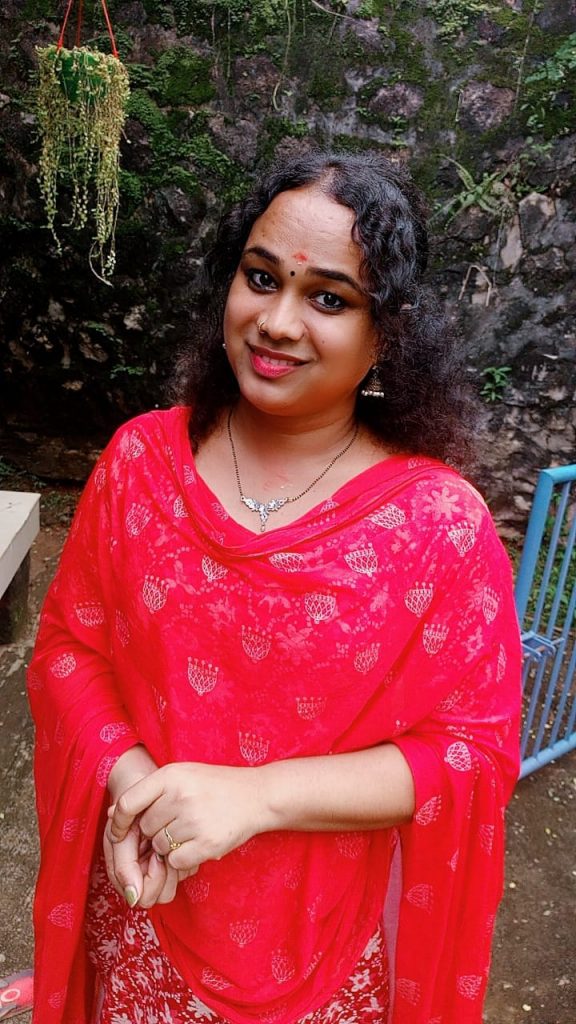
Trans persons undergoing SRS are also entitled to a monthly payment of 3000 rupees for post-operative care, for a period of one year. The government has spent 1.26 crore rupees since 2018 for reimbursement of SRS surgeries according to data obtained from the social justice department by Behanbox.
Since the scheme was introduced, SRS procedures has increased fourfold. 86 trans women and 42 trans men have availed of the financial support since 2018 according to data obtained from the social justice department.
The scheme has brought in some relief to the financial burden of transgender persons in the state. Before this scheme, trans persons would flee to the neighbouring states and join the Hijra community, which conducted crude gender change surgeries said Sreemayi S L, a transgender rights activist. These included castration methods such as ‘Thayamma Kai’, a procedure where penis and testicles were severed using sharp weapons.
“Others would also approach private hospitals in Nagercoil,Coimbatore and Bangalore, which conducted surgeries at lower prices ranging from Rs 20,000 to Rs 60,000 based on the complexity of the procedure. The facilities for SRS in Kerala began only a few years ago,” she said.
However, the state government’s financial scheme is a post operation reimbursement scheme. Trans persons have to organise for the expensive private surgeries upfront, which is something of a challenge.
“Surgeries are expensive and many raise money through sex work or begging. So when such surgeries fail, the impact is devastating,” Sreemayi told Behanbox. Transgender rights activists believe that trans men experience multiple oppressions, more than trans women, which include patriarchy in addition to transphobia
“However, I see the government scheme to reimburse the cost of SRS as a progressive move. The bigger issue, however, is the stigma associated with SRS”, said Saadiya. “As society sees SRS as a wasteful exercise, trans persons are hesitant to file complaints,” she said
Lack of Access to Government healthcare
SRS surgeries in Kerala are monopolised by four private hospitals, said Maya Krishnan, an advocate at Kerala High Court.
In months preceding her death, Alex had been discussing the possibilities of taking legal action against the Renai Medicity hospital with Krishnan.
“All the while that we were discussing the option, Anannyah was also contemplating undergoing a corrective surgery at the same hospital”, said Krishnan. “That is the problem with the monopoly. Trans people have no alternatives.”
Gender affirmative healthcare was not available in the government healthcare system in the state, according to a study conducted by Queerala, a LGBTIQ organisation in 2019. Two years hence, things remain unchanged.
The Transgender Persons (Protection of Right) Act, 2019 mandates public healthcare provisions, including sex reassignment surgery and hormonal therapy, for transgender persons. The Act also recommends for the publication of a health manual for SRS, in accordance with the guidelines issued by World Professional Association for Transgender Health (WPATH).
Psychiatrist Dr Jithin T Joseph believes that the WPATH guidelines, if followed properly, could address major concerns regarding the SRS in the country.
“A set of specialists, including psychiatrist, endocrinologist, plastic surgeon, gastroenterologist, gynaecologist and urologist are involved in the surgery. The WPATH guidelines are issued based on scientific studies, expert opinions and challenges faced by transgender persons”, he told Behanbox.
Though medical practitioners in India are not legally bound to follow the WPATH guidelines, the Transgender Persons (Protection of Right) Act recommends formulating guidelines in tune with the WPATH in India, said Dr. Joseph.
Private hospitals, in a hurry to cash in on the financial support offered by the government, flouted many of the norms, said Krishnan.
“Around five persons underwent SRS surgery during the time I was admitted at the hospital. I realised that they were cashing in on our desperate urge for a better life”, Govindan told Behanbox. While a consultation with a psychologist was arranged ahead of the surgery according to the norms, it was a routine exercise.
“The psychologist would just ask whether we are ready for the surgery but never talked of its implications in detail”, said Govindan. “In Anannyah’s case, I realised that she was neither given necessary hormone therapy nor the psychological support,” she said.
The first SRS surgery within the government healthcare system was conducted in 2017 at the Government Medical college hospital, Thiruvananthapuram. Sagar, a trans man, filed a complaint with the former Health Minister KK Shailaja and the State Human Rights Commission, about his botched surgery and the mental and physical trauma that he underwent.
“They took my body for their experiment. The doctor I consulted in Mumbai told me that the surgery at the Thiruvananthapuram MCH was not done according to protocol. This in turn led to several complications. The strong antibiotics they gave me for the infection caused further serious health issues,” Sagar said in an interview with Firstpost.
Thereafter, SRS procedures were conducted entirely in the private sector.
After Alex’s allegations and her death, Kerala’s social justice minister R Bindu informed the Kerala Assembly that a protocol would be introduced regarding sex reassignment surgeries.
“Government plans to address the issues, including medical complications of SRS, as a matter of immediate concern. The transgender justice board has decided to constitute an expert panel to study the possibility of introducing gender affirmative healthcare in the government sector and to issue norms according to WPATH guidelines”, she informed the assembly.
M Anjana, director of the Directorate of Social Justice, speaking to Behanbox, said that the government had taken steps to offer gender affirmative health care in government hospitals. “The expert panel will also check on the progress of the proposal to set up gender affirmative health care in government hospitals. The recommendations of transgender members of the transgender justice board too are being considered for follow up activities,” she said.
The minister has also ordered the directorate of the social justice department to submit report on providing health insurance to transgender persons and inclusion in the priority list of Life Mission, Kerala government’s housing scheme for the homeless.
Transphobia
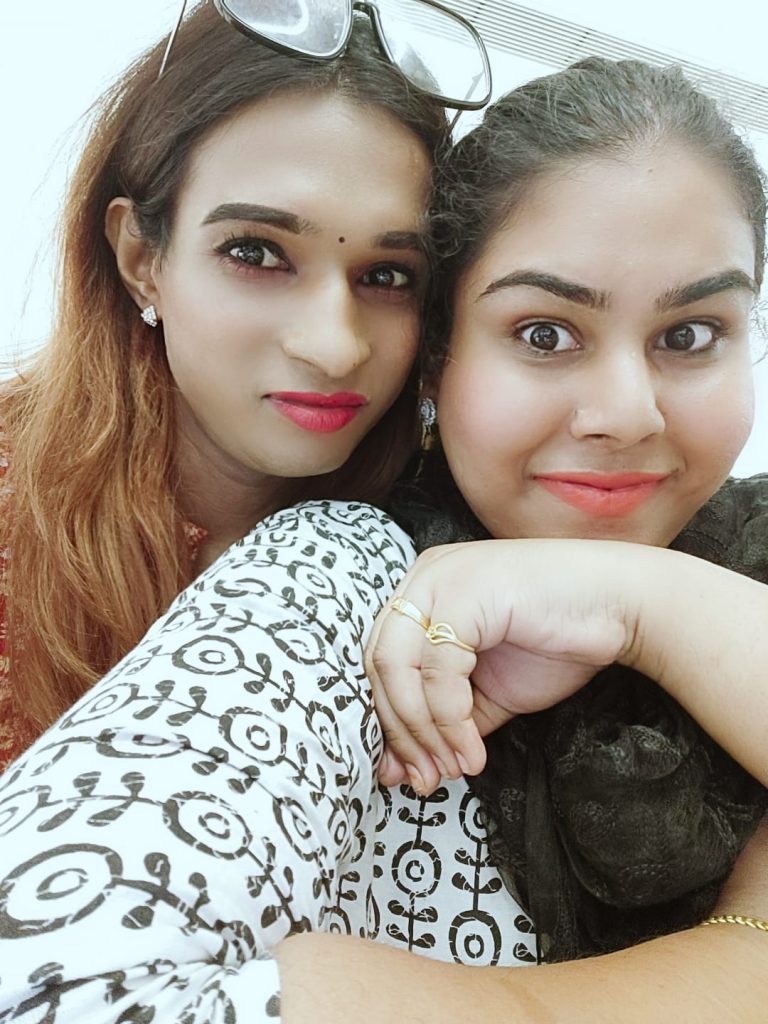
Kerala became the first state in the country to adopt a Transgender policy in 2015. It was also the year that 18-year-old Heidi Saadiya fled the state after she faced discrimination, after coming out as a transwoman. She was not alone. Most transgender persons would flee to places like Bangalore, Coimbatore or Madurai, where they could live with their identity or even access SRS procedures. Saadiya narrates why she had to flee.
“It was not just the bullying or sexually insulting comments. One of my relatives felt ashamed of the existence of a transgender person in the family, so he contracted a goon to have me killed”, she said.
Life outside Kerala was not easy either.
“Though most of us fled the state seeking a better life, the slave culture within the Hijra community was traumatizing. They would destroy our certificates and identity cards, so that we could work as slaves and earn money from begging and sex work,” Saadiya said.
A study conducted by the social justice department, Kerala government, in 2015 enumerated 25,000 transgender persons in Kerala. Of the 400 transgender persons surveyed, the study found that more than half of them earned less than 5000 rupees a month and only 11.6% transgender persons had a regular job. Around 58% reported that they dropped out of school before Class X due to severe harassment. The transgender policy aimed to ensure rights to equality, dignity and life without violence, for transgender persons in the state.
Saadiya returned to Kerala in 2017 as the situation improved in the state for trans persons. Alex and Saadiya adopted Renju Renjimar, a transgender activist and makeup artist, as their mother.
“Though Kerala is still a transphobic society, things began improving only after 2018. The transgender policy, announcement of financial support for education and SRS, allotment of short stay homes etc gave visibility to transgender persons”, said Saadiya.
After securing a post graduate diploma in electronic journalism from the Press Club Institute of Journalism in Thiruvananthapuram, Saadiya had become the first transsexual TV journalist in Kerala when she joined ‘Kairali’, a television channel backed by the Communist Party of Inda (Marxist).
“Even in the most progressive newsroom, people wanted to know what was between my legs. I had to quit due to discrimination,” said Saadiya, who now works in a corporate firm.
Though Kerala witnessed changes after introduction of transgender policy, lack of inclusivity in the mainstream society is still a major concern. Attempts by the government, such as the Kochi Metro Rail Limited’s job offer for transgender persons, were later dubbed as mere ‘tokenism’.
“Lot of trans persons quit their work due to low pay. Finding an accommodation in Kochi was very difficult. Though it was hailed as a progressive measure, there wasn’t much attempt to make the work environment more inclusive,” said Saadiya.
Saadiya asks the society to view the issue of SRS in the backdrop of transphobia.
“Had the society accepted transgender persons in their true identity, many might not have opted for a surgery. Surgery gives us confidence, visibility and independence. After going through so many struggles in life, all we want is some inner peace and happiness,” Saadiya said.
Changing Times
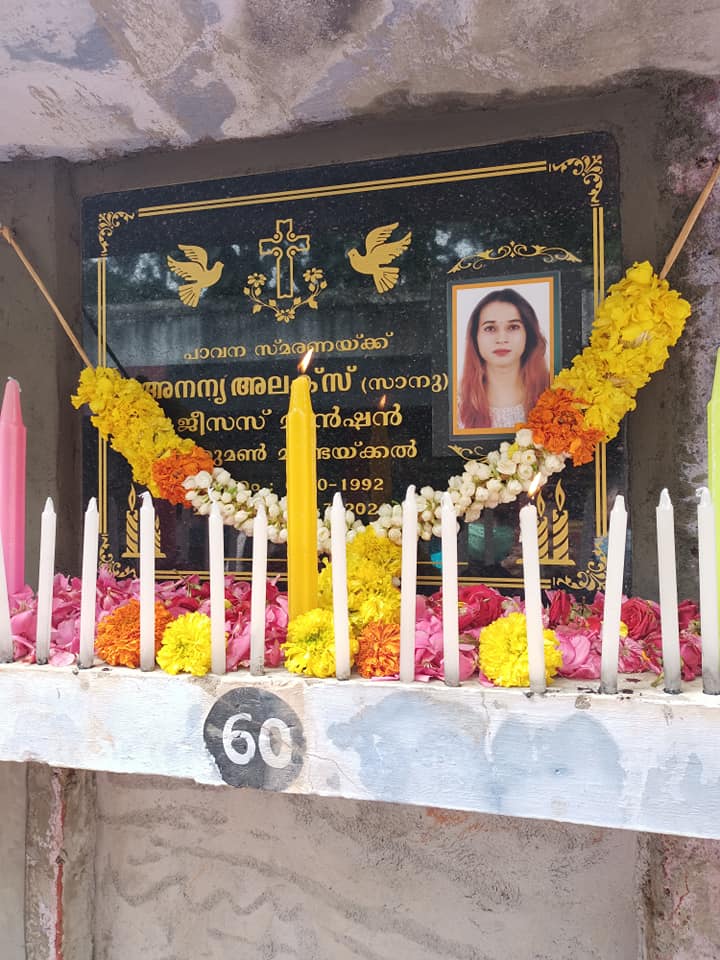
Alex, in her lifetime and after her death, has raised several questions on a range of issues such transphobia, gender affirmative healthcare, police atrocity towards transgender persons, sexual abuse and skewed portrayal of transgender persons in popular culture. She had even questioned the slavery-like system within the Hijra culture which she was part of, during a brief period in 2012.
As a child, Alex was forced into meditation exercises in various churches by her family to change her ‘feminine nature’. Only a few years ago, she mended the broken relationship with her father, who had opposed her transition earlier.
In a major deviation from the practices of Semitic religions, her parish St. Joseph’s Roman catholic church, Mundackal in Perumon, Kollam district, performed her funeral rites in her chosen name ‘Anannyah Kumari Alex’, a sign of changing times.
Our Newsletter
Subscribe to Our Newsletter
We believe everyone deserves equal access to accurate news. Support from our readers enables us to keep our journalism open and free for everyone, all over the world.
